Laser therapy is a revolutionary neurosurgical technique that uses the precision of laser energy to target and treat neurological conditions with remarkable accuracy. At Haynes Neurosurgery Group, we are proud to offer Laser Interstitial Thermal Therapy (LiTT) as part of our comprehensive neurosurgical services.
We carefully evaluate each patient's condition, considering their unique needs and treatment goals, to determine if laser therapy is a suitable option for them.
Our highly skilled and experienced neurosurgeons use LiTT with advanced imaging techniques, state-of-the-art equipment, and a patient-centered approach to provide the best possible outcomes for our patients.
Laser therapy, or LiTT, is a minimally invasive neurosurgical technique that employs the power of laser energy to treat a variety of neurological conditions.
During this advanced procedure, a thin laser probe is inserted directly into the target area, guided by real-time imaging technology, such as Magnetic Resonance Imaging (MRI).
The laser probe emits a specific wavelength of light that is absorbed by the abnormal tissue, converting it into heat. This localized heating destroys or ablates the targeted tissue, effectively treating the underlying neurological condition.
Laser therapy offers several advantages over traditional surgical approaches. These include:
- Laser therapy is a minimally invasive procedure requiring only a small incision for probe insertion. This reduces trauma, minimizes scarring, and provides faster recovery than open surgery.
- Laser therapy uses advanced imaging techniques that enable our neurosurgeons to target the abnormal tissue precisely, ensuring treatment is delivered to precise locations while preserving healthy tissue.
- Laser therapy allows for personalized treatment planning since the laser energy can be adjusted to match the specific characteristics of the abnormal tissue. This helps optimize therapeutic outcomes.
- LITT is typically performed on an outpatient basis or with a short hospital stay. Patients can often resume their normal activities sooner, leading to a faster recovery than traditional surgery.
Laser therapy has shown remarkable efficacy in the treatment of various neurological conditions. At Haynes Neurosurgical Group, we have used it effectively in treating the following conditions.
For patients with medication-resistant epilepsy or seizures originating from a specific area in the brain, laser therapy can be a valuable treatment option. It helps target and ablate the focus area precisely to reduce seizure frequency and intensity. This approach may provide relief for patients who have not responded well to medication or are not suitable candidates for traditional epilepsy surgery.
Laser therapy offers a highly precise and effective treatment option for certain types of brain tumors. The tumor cells can be destroyed by delivering targeted laser energy, leading to tumor shrinkage or complete removal. Laser therapy can be especially beneficial for tumors located in critical or hard-to-reach areas of the brain, where traditional surgery may pose higher risks.
Laser therapy can also be employed in the treatment of skull-base conditions, including skull base tumors and vascular malformations. Laser therapy helps target the abnormal tissue precisely to help shrink or eliminate lesions, alleviating symptoms and preserving neurological function.
Before you undergo a LiTT procedure, proper preparation is essential to ensure the best possible outcome. At Haynes Neurosurgery Group, we prioritize patient safety and comfort throughout the treatment process.
The LiTT procedure is typically performed in a surgical room with an intraoperative MRI machine.
Before the LiTT procedure, we will capture detailed images of the targeted area using advanced MRI technology. These images are used to identify precise areas for the placement of the lasers during the procedure. This careful planning helps protect healthy tissue from damage and ensures accurate treatment delivery.
After the LiTT procedure, you may be placed under observation in the hospital for one or two nights. Swelling in the treated area may occur for up to three months but is typically mild and resolves on its own.
Medications can be prescribed to manage any swelling or headaches that may arise. Most patients can typically go back to their normal activities within about a week, experiencing a shorter recovery than traditional craniotomy procedures. Full recovery may take several weeks.
While the risks associated with LiTT are relatively low compared to a craniotomy, it is important to be aware of potential side effects and complications that may arise. These can include:
- Mild swelling in the treated area should resolve on its own.
- Temporary speech problems or neurological changes, which usually resolve spontaneously.
- Rare instances of cerebrospinal fluid leaks, bleeding, or infection in the brain.
- Seizures, which may be related to the LiTT procedure or the underlying condition being treated.
The Haynes Neurosurgical Group team is focused on helping you achieve a better quality of life through innovative neurosurgical interventions. If you’re curious about whether laser therapy can be a viable treatment option for your specific neurological condition, we can help.
Our seasoned neurosurgeons use highly advanced technologies and employ a patient-centric ethos at Alabama’s premiere neurosurgical practice.
To schedule a consultation with one of our experts, call us at (205) 787-8676 or request an appointment online.


